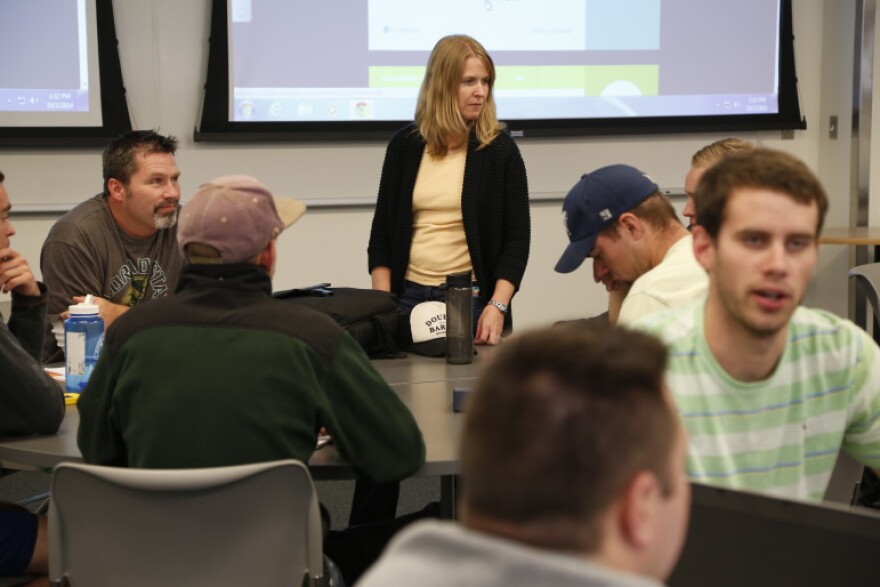Enrollment in petroleum engineering at the Colorado School of Mines, and at similar programs around the country, has risen dramatically in the last five years in response to the nation's energy boom. Students are flooding into these programs to cash in on high-paying industry jobs.
Conveniently for the students, there are plenty of these jobs to go around. It has not been as convenient though for many educators.
Although the School of Mines has gone from under 300 undergraduate petroleum engineering students to about 900 in the last decade, the faculty has stayed the same size. The same trend can be found at the University of Wyoming.
"It's becoming unmanageable in some sense," said University of Wyoming professor Vladimir Alvarado.
His program has quadrupled in the last five years. They are requesting more faculty to handle the growth, but the problem is finding qualified professors. Public universities just can't compete with the salaries being offered by oil and gas companies.
At the Colorado School of Mines, a petroleum engineering professor makes a little more than $100,000 a year, on average. They could make double if they went into the industry.

Schools are doing what they can to manage; creating more and more sections of the most popular classes to reduce class sizes and moving to more multiple choice tests to lower grading time. The School of Mines is having more undergraduates work as teaching assistants, like Senior Kate Denninger.
"It's great to be on the opposite side of things," Denninger said, "trying to help these guys get through the same problems I did."
Industry is stepping in, too, helping pay for new equipment and classrooms. At the School of Mines, oil company Schlumberger is even paying for one of its own employees to teach courses as an adjunct professor. Also, interim department head Erdal Ozkan said a saving grace in the professor shortage has been foreigners. More international academics are willing to accept lower pay for a chance to work in the U.S, and particularly, Ozkan said, for U.S. universities.
"We have the best universities, we still have the best research programs, we have the best connection with the industry," Ozkan said.
School of Mines professor Carrie McClelland won't be contributing to the teacher shortage. She actually took the opposite path, coming into the classroom from industry.
"Yeah, it's not about the money for me," she said, even if that is what it's about for a lot of her students.
Inside Energy is a public media collaboration, based in Colorado, Wyoming and North Dakota, focusing on the energy industry and its impacts.







